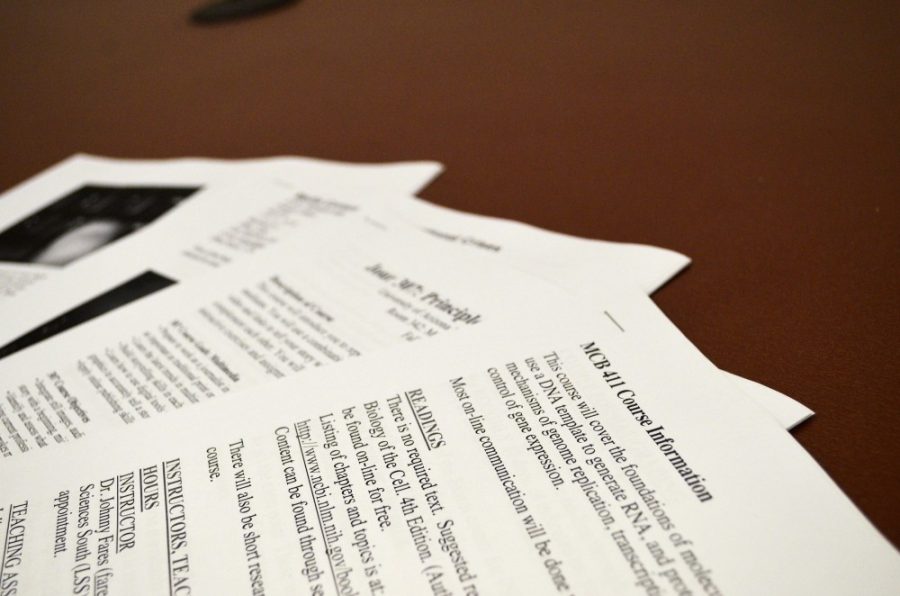The first week of a semester, aka syllabus week, is a new, different and exciting experience for incoming freshmen.
For most freshmen, it’s usually their first time attending school on their own, or being in a completely new town. Some freshmen may have older siblings or friends that can tell them what to expect for the first week of classes, but others will get to experience it all on their own.
Most people in high school had their parents to remind them every night to do homework, study for tests and go to class.
High school also offered smaller classes with teachers on students’ cases about paying attention and staying awake during lessons. There’s no doubt that syllabus week will be the easiest week of the college semester, but it’s also one of the most important weeks to attend class and pay attention.
On the first day of class, students will get their syllabus. It usually includes a course description, the teacher’s name and contact information, what the school expects students to learn in the class, the meeting dates and times of the class and a semester itinerary including day-to-day assignments, lessons and test dates.
Unlike high school, where a syllabus was lucky to even make it home on the first day of school, college syllabuses need to be read over and kept with students until the end of the semester.
“Always, always, always go to class the first week of school,” said Olivia Collini, a junior pre-business major at the UA. “A lot of people don’t go the first week [and] then they get dropped from the class for being absent.”
After the first day of class and receiving the syllabus, upperclassmen said that some professors will let you take the rest of the week off of class, but in harder classes it’s normal to get right into learning on the second day of class.
The key to having a successful first syllabus week is to plan ahead and stay organized.
Learning the way around campus before classes begin helps students fight running late due to confusion of class location. Getting a planner helps to figure out any tests, projects or papers that need to be turned in.
“I would definitely get a planner. The syllabus will give you the dates of finals, tests, when homework is due and what you’re learning each day, so you should write all of those dates down in your planner,” Collini said.
A common mistake that freshmen make is spending hundreds of dollars on textbooks that they don’t need. “Wait until you go to class and hear your professor say it,” said Collini. “They’ll be honest with you if you need certain books or not.”
It’s best to buy textbooks after the first day of class, as the UAccess booklist usually includes books that teachers won’t require in class.
Whether new Wildcats come to the UA with a large group of friends or arrive solo, syllabus week will be a new experience for all freshmen. Pushing to pay attention, attend class and complete assignments on time ensures a great freshman syllabus week experience.
Follow Emma Jackson on Twitter.









